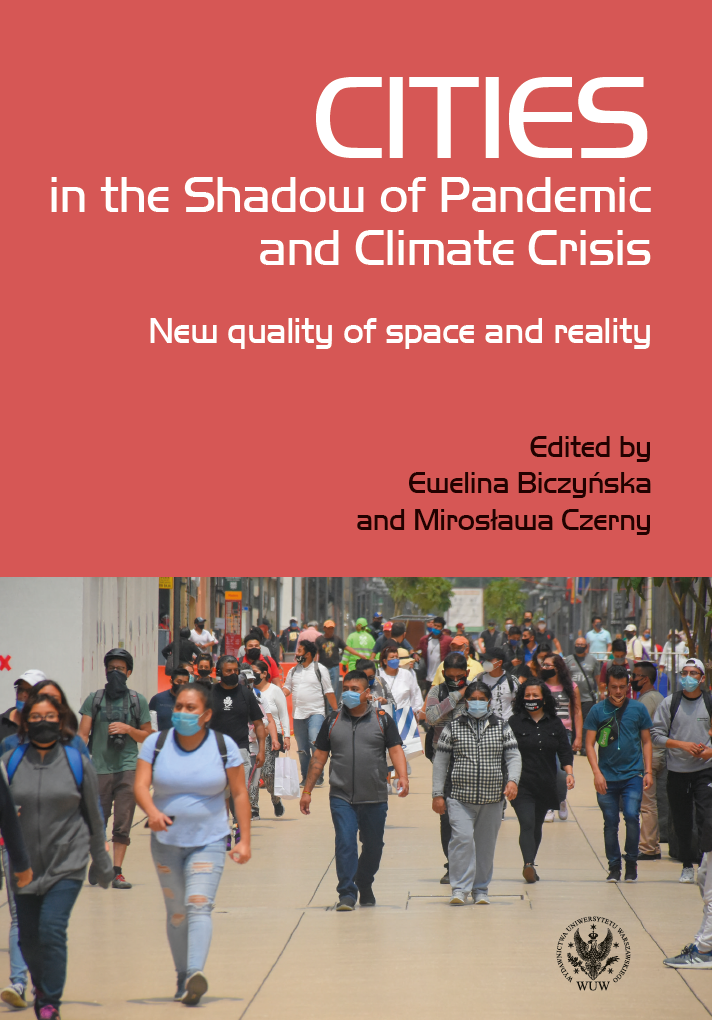
The SARS-CoV-2 coronavirus pandemic and the city’s spatial policy directions
The chapter discusses various issues of spatial policy in cities in the context of the COVID-19 pandemic. It presents a historical perspective of the impact of epidemics on the functioning of cities, public interventions taken to counter them, as well as challenges they pose for modern cities. Spatial policy is not an autonomous policy in the sense of being abstract from social, economic, and spatial conditions. It is the result of an integrated approach to development planning. Its effectiveness depends on the applied instruments, which nowadays go beyond the traditional spatial planning tools. It is important to develop urban management principles for a city resilient to the COVID-19 pandemic and to future outbreaks. This requires reformulating existing unsustainable urban patterns and tackling social inequalities. Cities need new health policies and efficient approaches to environmental sustainability and “green” economic recovery.
More...